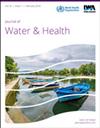实施基于风险的方法改善北欧地区小型供水系统的饮用水质量——障碍和解决办法
IF 2.4
4区 环境科学与生态学
Q3 ENVIRONMENTAL SCIENCES
引用次数: 0
摘要
无论所有权或管理类型如何,世界范围内的小型供水系统都面临着类似的问题。小型供水系统不遵守水质条例的情况比大型供水系统更为频繁,水传播疾病的爆发也是如此。新的欧盟饮用水指令要求采用基于风险的方法(RBA)来确保水安全,这是世卫组织《饮用水质量指南》通过“水安全计划”所建议的。北欧国家已经规定了这一点,尽管在小范围供应中使用较少。在本研究中,我们探讨了在小型供应中实施RBA和提高合规性的挑战、障碍和可能的解决方案。这是通过对来自所有8个北欧国家的53个利益攸关方进行访谈并进行分析来实现的,以便为不同的相关行为者提出行动建议。我们的研究结果表明,政府政策的中心地位,包括支持持续培训,提供简单的RBA指导方针和增加水部门的合作。北欧的经验反映了供水规模小的全球挑战以及世界卫生组织自2004年以来倡导的饮用水安全框架所体现的系统预防性管理趋势。本文章由计算机程序翻译,如有差异,请以英文原文为准。
Implementing risk-based approaches to improve drinking water quality in small water supplies in the Nordic region – barriers and solutions
Abstract Small water supplies face similar problems worldwide, regardless of ownership or management type. Non-compliance with water quality regulations is more frequent in small supplies than in large ones, as are waterborne disease outbreaks. The new EU Drinking Water Directive requires risk-based approach (RBA) to secure water safety as is recommended in the WHO's Guidelines for drinking water quality through ‘water safety plans’. This is already in regulation in the Nordic countries, although less used in small supplies. In this research, we explore the challenges, barriers and possible solutions to implementing RBA and improving compliance in small supplies. This was achieved by conducting and analysing interviews with 53 stakeholders from all 8 Nordic countries to produce recommendations for action by the different implicated actors. Our findings suggest the centrality of governmental policy, including support for continuous training, provision of simple RBA guidelines and increasing cooperation in the water sector. The Nordic experience reflects global challenges with small water supplies and the trend towards systematic preventive management epitomized in the framework for drinking water safety advocated by the World Health Organization since 2004.
求助全文
通过发布文献求助,成功后即可免费获取论文全文。
去求助
来源期刊

Journal of water and health
环境科学-环境科学
CiteScore
3.60
自引率
8.70%
发文量
110
审稿时长
18-36 weeks
期刊介绍:
Journal of Water and Health is a peer-reviewed journal devoted to the dissemination of information on the health implications and control of waterborne microorganisms and chemical substances in the broadest sense for developing and developed countries worldwide. This is to include microbial toxins, chemical quality and the aesthetic qualities of water.
 求助内容:
求助内容: 应助结果提醒方式:
应助结果提醒方式:


